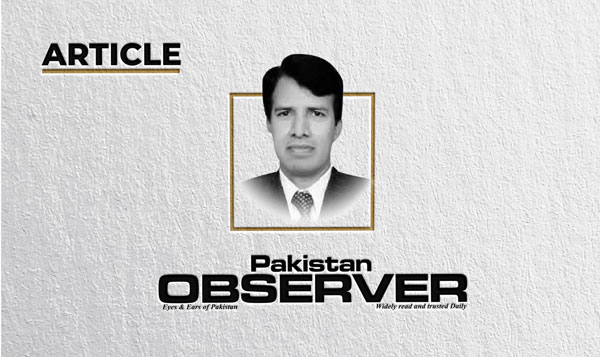Kashmir dispute: A long awaited role of UN
The 20th Century was marked by two devastating world wars; WW-I and WW-II, killing millions of human beings from across the globe.
At the end of WW-I, the League of Nations was established to maintain world peace by preventing wars through collective security and disarmament.
Besides, this world body was to settle interstate disputes and global issues through negotiations and arbitration.
Unfortunately, it remained short of its objectives and pushed the world towards another devastating war; WW-II in 1939.
WW-II was more deadly and total in nature. At the end of WW-II, the war victors established the UNO on 24 Oct 1945.
It was anticipated to be a more efficient and responsible international organization to control and regulate the global affairs for attaining international peace and cooperation.
The process of decolonization and right of self-determination are considered to be the hallmark and biggest credits of UNO.
Owing to decolonization and right of self-determination many new states came into being. India and Pakistan were among those states which decolonized in the initial years after the establishment of UNO.
Nevertheless, territorial boundaries of these newly independent states were manipulated in a way to give advantage to the successor state of British India (Bharat) while Pakistan was deprived of its basic rights and barred from having its due share from British India.
The Muslim majority Princely State of J&K was invaded by India on the false claim of Instrument of Accession.
In a way, Kashmiris were deprived of their basic right to join their dreamland, newly established State of Pakistan.
It was the first violation of the UNO mandated right of self-determination by the last Viceroy of India.
Kashmiris revolted over this violation of their right of self-determination and fought out against the Dogra ruler and invading Indian Army.
Upon the revolt by Kashmiris and Pakistan’s assistance to Kashmir’s struggle for their right, India referred the Kashmir case to the UNO on January 1, 1948.
UNSC immediately asked for the ceasefire and passed resolutions including two UNICIP resolutions for the solution of Kashmir dispute as per the wishes of its subjects.
Owing to its resolution over Kashmir, UN is party to the dispute ever since 1948. On its part, India adopted policies of gradual relegation of Kashmir dispute; its incorporation into Indian Union was accomplished on August 5, 2019 through annexation of Indian Illegally Occupied Jammu and Kashmir (IIOJK) as union territories.
It is worth mentioning that, since the 1990s, India even disallowed the ‘United Nations Military Observer Group in India and Pakistan (UNMOGIP), to visit the Line of Control (LoC) from the Indian side to IIOJK for monitoring the ceasefire violations.
It is worth mentioning that UNMOGIP was established in 1948 by UNSC for monitoring the ceasefire line (later called LoC) and any violations of ceasefire by either side between Pakistani and Indian forces deployed along the Line of Control.
In the last three decades, India even tried to convince the UN members that, UN resolutions over Kashmir are no longer valid, hence need deletion from the record of this world body.
Besides, it wanted rolling back the UNMOGIP from both India and Pakistan. India has been refusing any role of UNO by quoting Simla Agreement-1972.
In fact, Simla Agreement-1972 did not reject or relegate the UN resolutions nor this agreement can undo the mandate of UNMOGIP and its role.
This can only be done through another resolution by UNSC. Regretfully, Kashmir is the oldest unresolved dispute on the agenda of UN.
Whereas, over two dozen UN resolutions are calling for fair and impartial plebiscite for the decision of the dispute, India has resisted their implementation.
Many a time UN even nominated the plebiscite administrators and aids, but India always acted a stumbling block to all these efforts.
India did this all under the fear that, an impartial plebiscite would pave the way for Kashmiris to decide their future away from India.
Today, the people of Kashmir question the role and credibility of UN for not giving them their right of self-determination.
Kashmiris believe that, UN and international community have done very little about their right of self-determination.
With the re-emergence of Kashmiri struggle in 1990, UNO and major powers could have acted decisively to break the impasse. But, nothing was done by this world body and civilized international community.
Rather, UNO and international community remained silent over the illegal Indian act of annexation of IIOJK into Indian Union by relegating the statehood of occupied parts of Jammu and Kashmir.
Indeed, in the absence of any worthwhile response from UNO, India intensified its reign of terror over Kashmiris, killing those demanding their right of self-determination and incarcerating the popular leaders in order to silence the opposition.
Under its prohibited and discriminatory laws, Indian security forces are given sweeping powers to kill Kashmiris at will with total impunity.
Despite passage of over 7 decades, the people of IIOJK are being killed, tortured, raped and their land is illegally being handed over to non-Kashmiri Hindus from various parts of India.
This all comes under gross violation of human rights. The people of Kashmir question the role of UNO and demand this world body to take decisive step for the grant of right of self-determination to Kashmiris in the light of UNCIP Resolution adopted on 5 January 1949.
— The writer is Professor of Politics and IR at International Islamic University, Islamabad.










